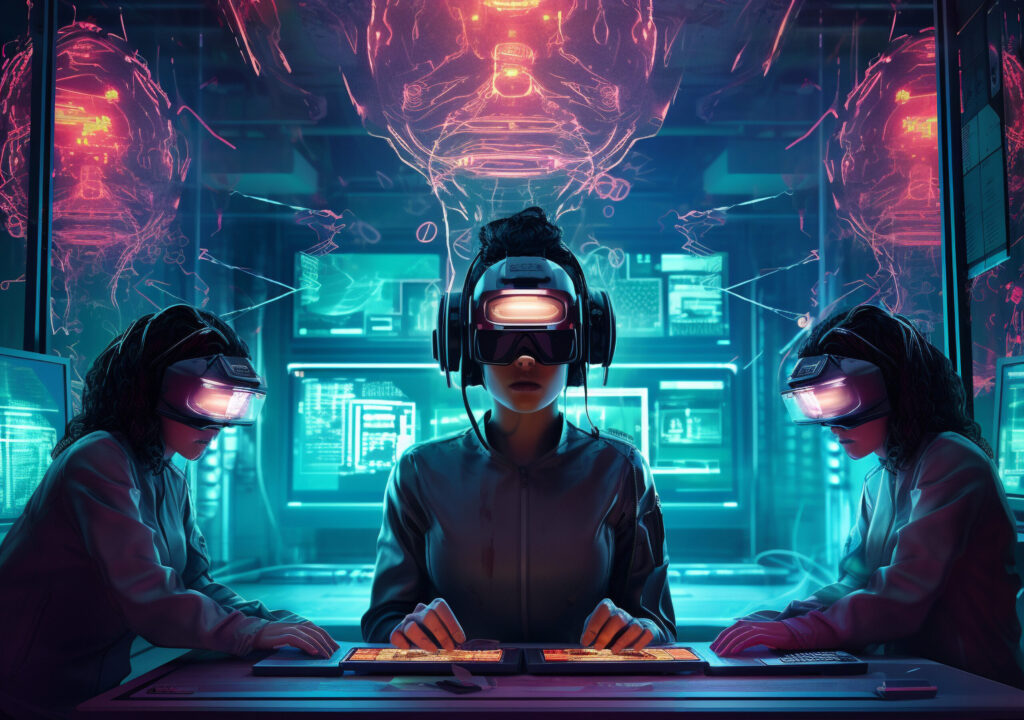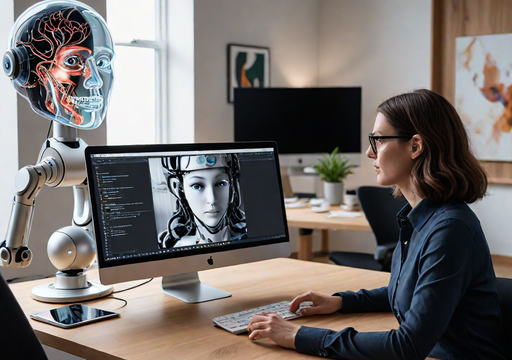Artificial Intelligence has revolutionized the gaming industry, transforming the way games are developed and experienced. From improving gameplay mechanics to creating more immersive experiences, AI is driving the growth of the industry like never before. Big names like Ubisoft, Rockstar Games, and Nvidia AI are all using AI to revolutionize how we play and interact with games. This blog will explore how AI is helping the gaming industry grow, the role of companies like Nvidia AI, Ubisoft, and Rockstar Games implementing AI in games and what the future holds for the gaming industry.
AI in Games: A Brief Overview
AI in gaming has evolved from simple rule based mechanics to systems that adapt, learn, and create immersive experiences. Initially, game developers used basic algorithms to make non-player characters (NPCs) follow fixed paths or exhibit predictable behaviors. As technology progressed, AI in games also evolved. Today, AI can learn from a player’s behavior, adapt to different scenarios, and create more realistic and engaging experiences.
For example, Nvidia AI has developed innovative tools that allow developers to create more intelligent NPCs and realistic environments. AI in games now means that characters can react more naturally to their surroundings, making the gameplay more engaging for the players.
How AI is Helping the Gaming Industry to Grow:
Enhanced Player Experience: AI in games enhances the overall player experience by making characters smarter and more reactive. Ubisoft has been a developer in using AI in games to create open world environments where NPC can behave independently, making games like Assassin’s Creed more immersive.
Personalized Gameplay: AI in games can now track a player’s style and adapt accordingly. If you’re someone who likes stealth, the game can adjust NPC behavior to make stealth gameplay more challenging or rewarding. This personalized approach keeps players engaged for longer periods and increases replay value.
Improved Game Development: AI is also helping behind the scenes by making game development more efficient. Nvidia AI, offers tools that automate certain aspects of game design, such as lighting and texture creation, saving developers time and effort. With AI, developers can create larger and more complex world faster than ever before.
Realistic Graphics: AI is playing a crucial role in improving game graphics. Nvidia AI has been at the forefront of developing AI-based graphics solutions. Their DLSS (Deep Learning Super Sampling) technology allows games to render at higher resolutions without impacting performance. This means gamers can enjoy stunning visuals without needing top-tier hardware.
AI in Game Testing: Traditionally, testing a game for bugs and glitches was a manual process, which could be time consuming and performing to errors. With AI integrated into games, testing can be automated, allowing it to simulate thousands of gameplay scenarios and detect bugs or glitches that human testers may overlook.This leads to smoother, more polished game releases.
The Role of Big Companies Implementing in AI:
Ubisoft: Known for their expansive open-world games like Assassin’s Creed and Watch Dogs, Ubisoft uses AI to create more interactive and immersive worlds. Their in house AI system, called Ubisoft La Forge, is focused on creating realistic NPC behavior, making the game world feel more dynamic.
Rockstar Games: Rockstar Games is famous for the Grand Theft Auto series, they uses Artificial intelligence to make their NPCs more reactive and their worlds more dynamic. In Red Dead Redemption 2, AI controlled characters remember player actions, creating a more immersive and responsive world. This attention to detail is a key factor in why Rockstar Games continues to be a leader in the industry.
Nvidia AI: Nvidia is a technology company, and its AI innovations play a crucial role in shaping the gaming industry. Nvidia AI powers realistic graphics, faster game development, and more advanced physics simulations. Their AI-driven DLSS technology allows developers to push the boundaries of graphically possible in games.
The Future of Gaming Industry with AI:
More Realistic NPCs: As AI in games improves, NPCs will become even more intelligent and human-like. They will not only react to player actions but also make decisions based on their environment, creating a more dynamic and unpredictable game world.
Cross-Platform AI Integration: AI in games will likely become more integrated across platforms. Nvidia AI is already working on technologies that allow for seamless transitions between PC, console, and cloud gaming. This will create a more combined gaming experience regardless of the platform you are using.
AI and Virtual Reality (VR): As VR becomes more mainstream, AI in games will be essential for creating immersive VR experiences. AI will help to create more responsive and realistic virtual environments, making VR a key component in the future of gaming industry.
Conclusion
AI in games is not just a trend, but it is the driving force behind the future of gaming industry. Companies like Nvidia AI, Ubisoft, and Rockstar Games are all pushing the boundaries to make more possible, using AI to create more immersive, engaging, and visually stunning games. As AI continues to evolve, the future of gaming industry looks more exciting than ever, with limitless possibilities for innovation and growth.



